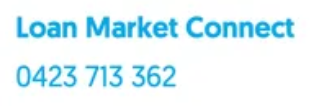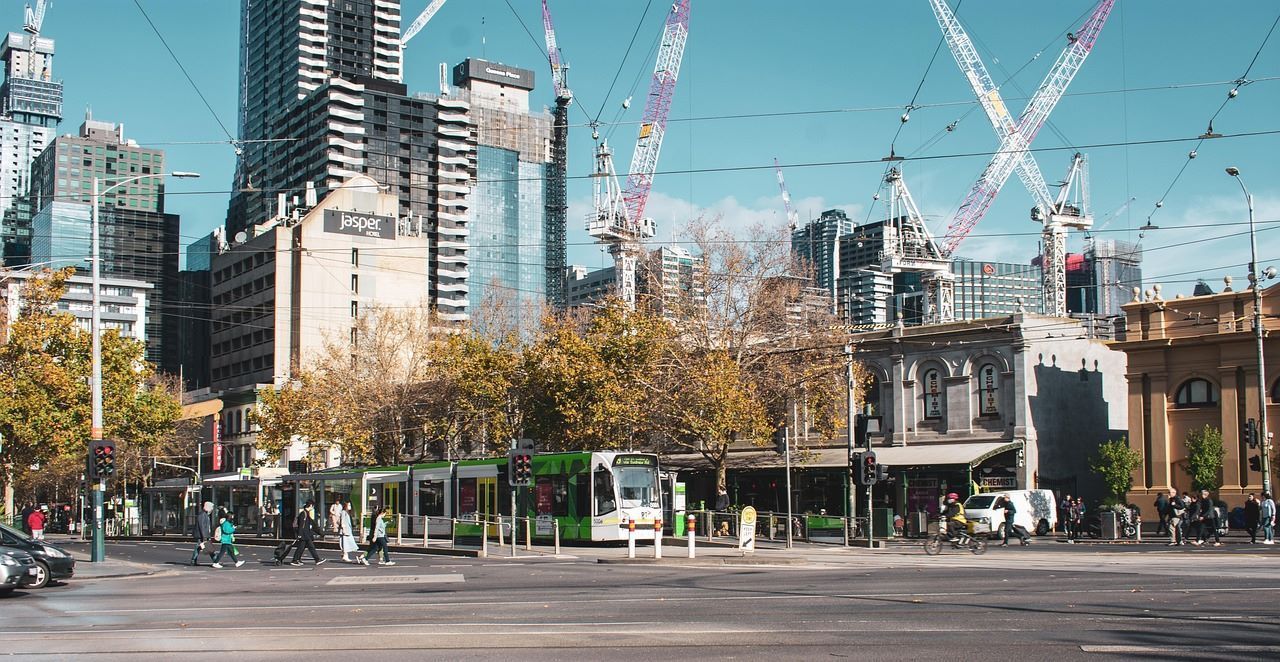Comprehensive Guide to Home Loans for Sole Traders in Melbourne
For sole traders in Melbourne, securing a home loan can often feel a bit different compared to traditional lending processes. With irregular income and unique financial situations, getting a lender to understand your business and financial position can seem like a complex task.
That's where a
mortgage broker comes in handy – they simplify the process, helping to match you with the right lender, guide you through documentation, and increase your chances of approval.
In this guide, we’ll unpack how to best position yourself for a home loan in 2024 and share tips on making the application process smoother.
🏡 Need Home Loan help?
We've helped thousands of locals.
Just call us on 0423 713 362
Or visit our website homepage
2024 Melbourne Property Market: An Insight Into Sole Traders' Homeownership
The Melbourne property market has continued to show strong growth, and the opportunities for homeownership, particularly for sole traders, are quite favourable. As of 2024, Melbourne's median house price sits around $930,000, with units priced around $610,000 (Domain's House Price Report).
The city’s diverse suburbs, steady infrastructure developments, and increasing demand make it a solid environment for both homeownership and investment properties. For sole traders, the market offers flexibility and potential for growth. Suburbs like Sunshine, Werribee, and Craigieburn are experiencing rapid development and have more affordable entry points, offering great opportunities for those seeking to enter the market with a smaller deposit.
Additionally, interest rates for residential lending are currently in a favourable range of around 4-5% for variable rate loans (Reserve Bank of Australia), making it an opportune time for self-employed individuals or business owners to take advantage of low loan rates. The stable rental market in Melbourne also presents strong opportunities for those considering purchasing a rental property as an investment, providing another income stream to support mortgage repayments.
With Melbourne’s property market remaining steady and diverse, sole traders can find options that suit both their personal and business financial goals. Whether it’s for personal use or investment, the city's variety and growth potential provides an encouraging landscape for self-employed individuals seeking to become homeowners.
What Makes Sole Traders Different in the Home Loan Process?
Sole traders have unique financial situations. Unlike someone with a regular salary, your income might vary from month to month. Lenders generally require more extensive financial documentation and proof of income to determine your borrowing power. They look at your actual income, expenses, and how long you’ve been in business.
Key financial documents you may need to present include:
- Personal Tax Returns & Business Tax Returns: Generally, lenders want at least the last two years.
- Financial Statements & Balance Sheets: This provides an overview of your business’s financial health.
- Notice of Assessment: To confirm your taxable income as assessed by the ATO.
- Bank Statements: A record of your income sources, savings history, and regular income.
These documents give lenders a full picture of your financial position, helping them determine your chances of approval. They also help lenders assess how reliable you are when it comes to mortgage repayments.
Types of Loans Suitable for Sole Traders
Securing a home loan as a sole trader in Melbourne might require exploring different types of lending products tailored to self-employed borrowers. Let’s look at six options commonly available in 2024, each with its unique benefits and considerations:
Low-Doc Loans
Great for Sole Traders with Limited Documentation. Low-doc (or low documentation) loans are designed for those who may not have traditional financial statements, such as PAYG summaries. You’ll need to provide some evidence of income, like BAS statements or business bank statements. These loans usually have a higher interest rate but can be a quick route to finance.
Full-Doc Loans
Best for Sole Traders with Stable Business History. Full-doc loans are similar to standard home loans, but they require more extensive financial documentation, such as tax returns and balance sheets for the last two years. If you have a steady business income and comprehensive financial documents, this loan can offer competitive interest rates.
Variable Rate Home Loans
Flexible Repayment Options. A variable rate loan’s interest rate changes with the market, meaning your repayments can vary. Many sole traders opt for this type due to its flexibility, which allows for extra repayments or a redraw facility when business cash flow permits.
Fixed-Rate Home Loans
Lock in Stability. If you're looking to keep your repayments steady over a certain period (typically 1-5 years), fixed-rate loans allow you to lock in your interest rate. This is helpful for sole traders who prefer predictable monthly budgeting, especially in an environment where interest rates are expected to rise.
Offset Home Loans
Reduce Your Interest Payments. An offset home loan allows you to link your mortgage with an offset account. The money in this account reduces your interest payments. This is ideal for sole traders who maintain significant business or personal savings and want to minimise interest costs.
Interest-Only Loans
Ideal for Investment Properties. In an interest-only loan, you pay just the interest for a set period (typically 1-5 years). This can be particularly appealing to sole traders looking to invest in property and maximise cash flow in the short term, with the intention to switch to principal-and-interest repayments later.
🏡 Need Home Loan help?
We've helped thousands of locals.
Just call us on 0423 713 362
Or visit our website homepage
Case Study: Mark's Journey to a Home Loan Approval
Mark, a Melbourne-based graphic designer, had been a sole trader for 3 years. His business was profitable, but his income was irregular, and he wasn’t sure if he could get a home loan.
With the help of a mortgage broker, Mark prepared two years' worth of business tax returns, personal tax returns, and notices of assessment. He also demonstrated a steady savings history and provided a larger deposit (20%).
The broker recommended a low-doc loan that suited his financial situation, and within 8 weeks, Mark received conditional approval. Today, he's a proud homeowner in Melbourne, proving that with the right guidance and preparation, sole traders can secure a home loan!
Common Challenges Sole Traders Face When Applying for Home Loans
While sole traders have the freedom to run their own businesses, this also comes with certain hurdles when applying for home loans. Here are six common challenges that self-employed borrowers in Melbourne often encounter:
- Proving Irregular Income: Unlike PAYG employees with regular salaries, sole traders often have fluctuating incomes. Lenders may find it difficult to assess your actual income, making it harder to prove a steady ability to make repayments.
- More Extensive Documentation Requirements: You’ll need more paperwork than standard borrowers, such as detailed business tax returns, profit and loss statements, and notices of assessment. Preparing this level of documentation can be time-consuming and might require a financial specialist's assistance.
- Limited Lender Options: Some lenders are less willing to work with sole traders due to perceived risks, which means fewer options to choose from. However, mortgage brokers can connect you to a broader range of lenders who specialise in self-employed home loans.
- Lower Borrowing Power: Lenders may assess your borrowing power conservatively. Even if you have a viable business, your borrowing capacity might be calculated based on a lower income estimate or after taking into account expenses, deductions, and asset write-offs.
- Stricter Credit Criteria: Lenders may apply stricter credit criteria, such as higher deposit requirements or higher interest rates, to self-employed borrowers. Demonstrating financial stability and a strong credit score becomes crucial to improving the chances of approval.
- Difficulty Avoiding Lenders Mortgage Insurance (LMI): Sole traders may face challenges in saving a larger deposit (20% or more), which is required to avoid LMI. However, by showcasing a strong savings history and stable business financials, it is still possible to get around this extra cost.
Now that you're aware of the challenges, let’s explore strategies to overcome them and strengthen your loan application as a sole trader in Melbourne.
Steps to Improve Your Chances of Home Loan Approval
Improving your home loan approval chances as a sole trader involves more than just showing financial success. It's about presenting your financial position in a way that makes lenders confident in your ability to repay the loan. Here are 8 steps to strengthen your application:
#1 Organise Your Financial Documentation Early
Get your business tax returns, profit and loss statements, balance sheets, and notices of assessment ready. Lenders like detailed, accurate documents, so staying organised helps speed up the application process.
#2 Demonstrate Consistent Income
Showing steady income over at least two years is key. Even if your income varies, highlighting strong months and projecting average earnings can give lenders confidence in your financial stability.
#3 Pay Off Debts
Reduce outstanding loans, credit card balances, and personal debts. Lenders assess your existing obligations when considering your borrowing power, and a lower debt profile increases your chances of approval.
#4 Boost Your Deposit Savings
Aim to save at least 20% of the property price to avoid Lenders Mortgage Insurance (LMI) and improve your chances of getting a better interest rate. Regular savings demonstrate financial discipline to lenders.
#5 Improve Your Credit Score
A strong credit score is vital. Ensure bills are paid on time, limit your credit inquiries, and avoid missed payments. A better credit score equals a better impression on lenders.
#6 Showcase a Reliable Cash Flow
Provide clear evidence of your business’s cash flow, which helps prove that your business income is viable and reliable. Lenders look for this to assess your capacity to make regular repayments.
#7 Limit Business Expense Deductions
While tax deductions help reduce taxable income, they can also lower your borrowing capacity in the eyes of lenders. Consider balancing tax deductions to present a higher actual income.
#8 Consult a Mortgage Broker
Mortgage brokers know the market and understand how to package your application to improve your chances of success. They can match you with lenders who favour self-employed borrowers and navigate the best loan products available.
🏡 Need Home Loan help?
We've helped thousands of locals.
Just call us on 0423 713 362
Or visit our website homepage
FAQs
How long do you have to be a sole trader to get a mortgage?
Most lenders prefer at least two years of self-employment to demonstrate a stable income, though some may consider 12 months if the business is profitable and financials are strong.
Can you get a mortgage with an ABN?
Yes, having an ABN is essential for applying as a sole trader, and it helps prove the legitimacy of your business when applying for a home loan.
Is it hard to get a home loan as a business owner?
It can be more complex than for PAYG employees, as lenders require more financial documentation and evidence of stable income, but it's entirely achievable with the right preparation.
How do I prove my income as a sole trader?
You can prove your income by providing personal and business tax returns, profit and loss statements, notices of assessment, and business bank statements.
Can I have an ABN and be on Centrelink?
Yes, you can hold an ABN while receiving Centrelink benefits; however, lenders may assess your Centrelink income differently when considering you for a home loan.
Is a business loan different to a home loan?
Yes, a business loan is designed for business-related purposes and often has different terms and interest rates, while a home loan is specifically for purchasing residential property.
What’s the typical loan interest rate for sole traders in 2024?
Interest rates for self-employed home loans range from around 4-5%, but it varies based on your financial status and lender.
Conclusion
As a sole trader in Melbourne, finding the right home loan is all about preparation, organisation, and understanding the best options available for your situation. With the right approach, you can make your dream of homeownership or property investment a reality.
Remember, working with an experienced mortgage broker can make all the difference in finding a loan that fits your needs. If you're ready to take the next step, chat with our team at
LM Connect today! Visit
lmconnect.com.au or give us a call on
0423 713 362 to start your journey.

Researching home loans?
Just call us on 📞 0423 713 362
JACOB DECRU & OUR TEAM
We're LM Connect, run by Jacob Decru, your local Mortgage Brokers Melbourne and part of the Loan Market Connect team. You can also contact us here: connect@loanmarket.com.au
Our main Melbourne office:
1038A Dandenong Rd, Carnegie VIC 3163
USEFUL LINKS
All Rights Reserved. SEO by Copyburst



